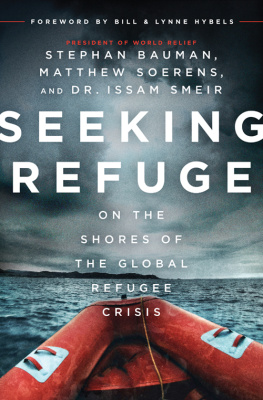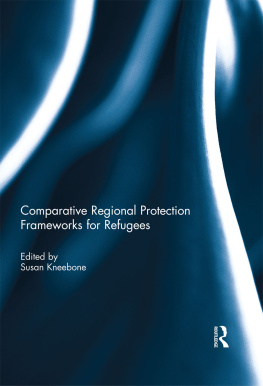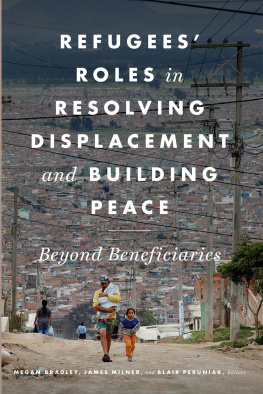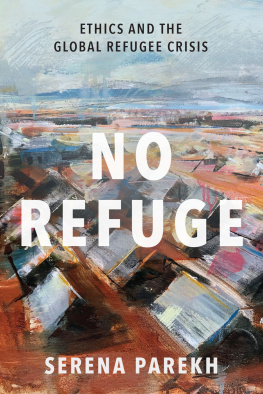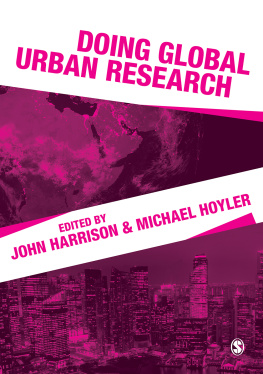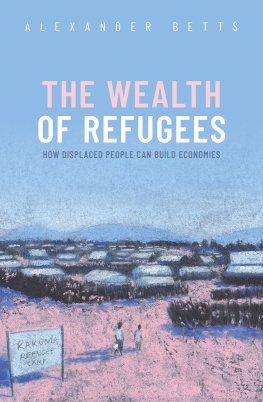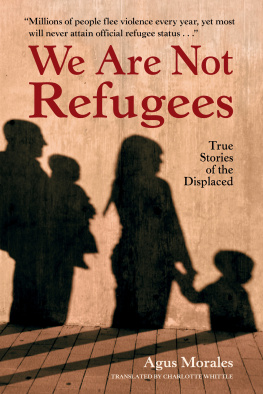Mobilizing
Global
Knowledge
Mobilizing
Global
Knowledge
Refugee Research in an
Age of Displacement
Edited by
Susan McGrath
and Julie E. E. Young
2019 Susan McGrath and Julie E. E. Young
University of Calgary Press
2500 University Drive NW
Calgary, Alberta
Canada T2N 1N4
press.ucalgary.ca
This book is available as an ebook which is licensed under a Creative Commons license.
The publisher should be contacted for any commercial use which falls outside the terms
of that license.
Library and Archives Canada Cataloguing in Publication
Title: Mobilizing global knowledge : refugee research in an age of displacement / edited by
Susan McGrath and Julie E. E. Young.
Names: McGrath, Susan, 1946- editor. | Young, Julie E. E., 1978- editor.
Description: Includes bibliographical references and index.
Identifiers: Canadiana (print) 20190103000 | Canadiana (ebook) 20190103043 | ISBN
9781773850856 (softcover) | ISBN 9781773850863 (Open Access PDF) | ISBN 9781773850870
(PDF) | ISBN 9781773850887 (EPUB) | ISBN 9781773850894 (Kindle)
Subjects: LCSH: RefugeesResearch.
Classification: LCC HV640 .M63 2019 | DDC 305.9/06914072dc23
The University of Calgary Press acknowledges the support of the Government of Alberta through the Alberta Media Fund for our publications. We acknowledge the financial support of the Government of Canada. We acknowledge the financial support of the Canada Council for the
Arts for our publishing program.
This book has been published with the help of a grant from the Canadian Federation for the Humanities and Social Sciences, through the Awards to Scholarly Publications Program, using funds provided by the Social Sciences and Humanities Research Council of Canada.
Susan McGrath and Julie E. E. Young thank contributor Nergis Canefe for creating and donating the beautiful cover painting titled Tree of life: version non-status . The image is a response to RRN members who had proposed that the network should have more branches and less roots.
Copyediting by Kathryn Simpson
Cover design, page design, and typesetting by Melina Cusano
Contents
Susan McGrath and Julie E. E. Young
Power and Politics in Refugee Research
Loren B. Landau
Nergis Canefe
Susan Kneebone
Wenona Giles and Don Dippo
Paula Banerjee and Ranabir Samaddar
Emerging and Developing Research Approaches and Tools
Susan F. Martin and Lisa Singh
James C. Simeon
Ellen Percy Kraly and Mohammad Jalal Abbasi-Shavazi
9 Disseminating Knowledge in the Digital Age: The Case
of the Refugee Research Network
William J. Payne and Michele Millard
Knowledge Production and the Ethics of Network Formation
Brittany Lauren Wheeler and Petra Molnar
Pablo Bose and Elizabeth Lunstrum
Beatriz Eugenia Snchez-Mojica
Christina Clark-Kazak
Susan McGrath
Introduction: Mobilizing Global Knowledge in Forced Migration Studies and Practice
Susan McGrath and Julie E. E. Young
Scholars from other societies and traditions of inquiry could bring to this debate their own ideas about what counts as new knowledge and what communities of judgement and accountability they might judge to be central in the pursuit of such knowledge .
Arjun Appadurai
Reflecting on more than ten years of work in conceptualizing and building a network for refugee research, we pose the challengeto ourselves and othersof ethical networking for research and practice. Research partnerships and collaborations have become the standard for funded research in recent years (Bradley 2007; McGrath et al. 2011; Landau 2012). A key question driving our work on the Refugee Research Network (RRN) was how to collaborate ethicallyor at least how to think ethically when building a research network. Moreover, through our work together, we sought to generate and disseminate knowledge in ways that are accessible to multiple audiences and that would improve the well-being of refugees.
We recognize, and share concerns about, the politics of knowledge production in forced migration contexts. The global nature of the RRN means that partners are across the so-called north/south divide, with different resources and capacities. It is an environment where people in the more marginal regions of the world risk being simply producers of data for the theory mills of the North, as Appadurai (2000, 5) has warned, and where donors, primarily from the north, are setting forced migration research agendasoften with the primacy of policy relevant research (Bradley 2007; Landau 2012). We have aspired to bring disparate cultures of knowledge production into effective relation with one another, which Jazeel and McFarlane (2007) describe as responsible learningalong the lines of the strong internationalization that Appadurai (2000) describes in the epigraph, in which scholars from a broad range of societies and traditions of inquiry determine what counts as new knowledge.
This edited volume reflects on the lessons learned through our work as the RRN, a global network of academics, practitioners, and policymakers built around relationships among refugee research centres across the global south and north in Bogot, Cairo, Chicago, Johannesburg, Kampala, Kolkata, London, Melbourne, Oxford, Sydney, Tehran, Toronto, and Washington. The RRN emerged out of a vision to establish a collaborative network that has a wide-ranging and progressive impact on refugee research and policy in Canada and globally. This volume seeks to capture and reflect on how we tried to build networks for knowledge production and mobilization and what we were able to accomplish together, as well as the challenges of bridging silos, sectors, and regions and engaging across global north-south tensions. The RRN guided the formation of eight multidisciplinary research clusters addressing major questions in the field, three regional networks (Canada, Latin America, and Asia Pacific), and two issue-specific networks (emerging scholars and global refugee policy). These networks within the network have functioned relatively independently to generate new knowledge on key issues facing refugees and those who work to protect them.
The key question motivating this collection is: what are the contributions of a research network to thinking about the broader ethical, methodological, and practical questions in the field of refugee studies? Contributors reflect on the process of building networks in the context of research on refugees, displacement, and forced migration. Thus the book bridges scholarship on the practice of building networks for knowledge production and dissemination and scholarship on the process of doing research with and about refugees (including questions of ethics and methodologies). In this introduction, we identify and examine some of the ethical questions raised by networks and partnerships in the field of refugee studies, which is already fraught with (neo)colonial relationships and power dynamics.
Our RRN work has highlighted how knowledge production and dissemination are contingent on human relationships. It has shown us that building equitable and interactive learning and sharing experiences requires mutual trust, respect, and reciprocity within the community of practice. What is more, supportive relationships in turn promote healthy networks capable of adapting and responding to shifting cultural and political terrains. It reminds us that effective and useful research and advocacy must also be combined with a conscious and directed commitment to the democratization of knowledge production within and beyond the community. This is especially relevant in the context of a research community and field of research that has traditionally been dominated by scholars in the global north while the questions and issues raised in research and practice are most acutely experienced and addressed by actors in the global south.


